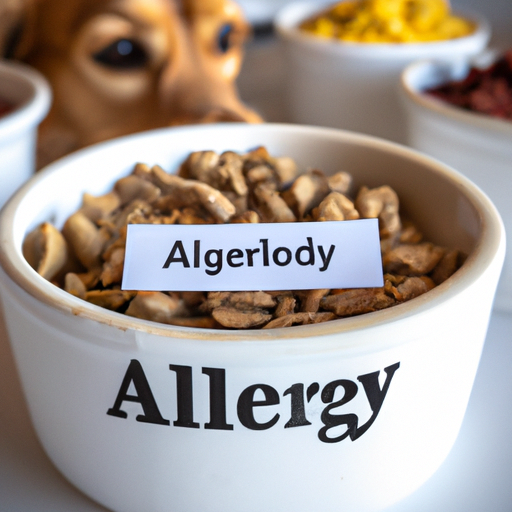As a dog parent, your pet’s health is a top priority. If your furry friend has allergies, it can be hard to know what to feed them. This guide will provide you with the information you need to make the best decisions for your pet’s diet.
Understanding Canine Allergies
Firstly, it’s important to understand what causes allergies in dogs. Just like in humans, a dog’s immune system can react to certain substances, known as allergens. These can be found in their food, the environment, or even in the air they breathe.
Common symptoms of allergies in dogs include:
- Itchy, red, or swollen skin
- Sneezing, coughing, or wheezing
- Digestive issues like vomiting or diarrhea
- Chronic ear infections
If you suspect your dog has an allergy, it’s important to consult with a veterinarian for a proper diagnosis.
Identifying Allergy-Inducing Foods
Once you’re aware of your dog’s allergy, it’s crucial to identify the foods that can trigger an allergic reaction. Some common allergenic foods for dogs include:
- Beef
- Dairy products
- Chicken
- Wheat
- Soy
- Corn
You can identify these allergens through an elimination diet. This involves removing all potential allergens from your dog’s diet, then gradually reintroducing them one by one and observing for any reactions.
Choosing the Right Foods for Dogs with Allergies
When it comes to feeding your dog, choosing the right foods can be a game-changer. Many veterinarians recommend hypoallergenic dog foods. These foods are specifically formulated to minimize the risk of allergic reactions.
Here are some key features to look for in hypoallergenic dog foods:
- Single-protein source
- Limited ingredients
- Grain-free formulation
| Feature | Importance |
|---|---|
| Single-protein source | Helps identify specific protein allergens |
| Limited ingredients | Reduces potential allergens |
| Grain-free formulation | Prevents reactions to common grain allergens |
Supplements for Dogs with Allergies
In addition to a hypoallergenic diet, certain supplements can help manage your dog’s allergies. These include:
- Omega-3 fatty acids: These can help reduce inflammation and improve skin health.
- Probiotics: These can help boost your dog’s digestive health and immunity.
- Antioxidants: These can help protect your dog’s cells from damage.
Frequently Asked Questions
Q: Can dogs be allergic to all types of proteins?
A: No, not all proteins cause allergies. It’s specific proteins, typically from beef, chicken, or dairy, that most commonly cause allergies in dogs.
Q: Is it necessary to consult a vet before changing my dog’s diet?
A: Yes, it’s always best to consult with a vet before making any significant changes to your dog’s diet.
Q: Are hypoallergenic dog foods more expensive?
A: While they can be more expensive than regular dog food, many dog parents find the benefits outweigh the cost.
By understanding your dog’s allergies and choosing the right foods, you can provide your dog with a comfortable and healthy life. Remember, every dog is unique, so what works for one may not work for all. Always consult with a vet before making any major changes to your dog’s diet.



